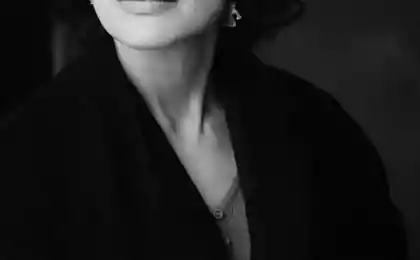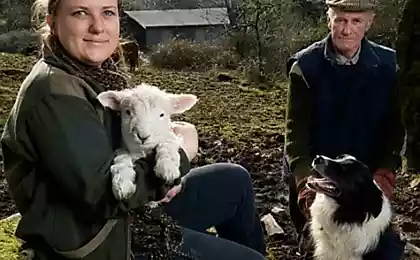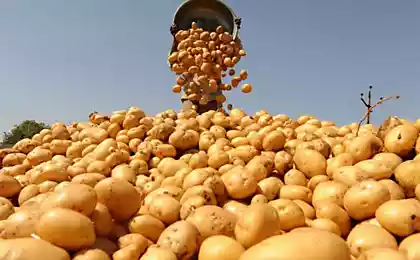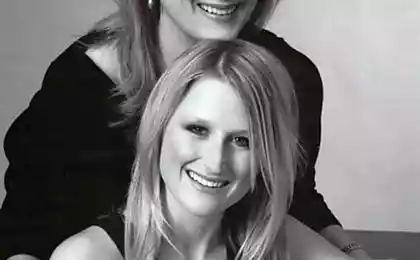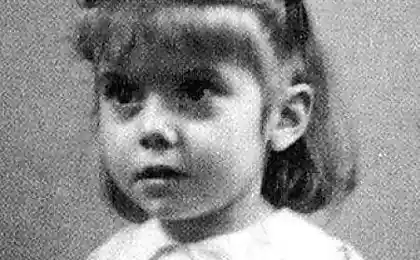447
How to talk to your daughter about puberty
How to start talking about menstruation with their daughters
"My first period started when I just turned twelve. I was thousands of miles from home at the meeting of the girl scouts. I slept in the tent with the girls I met a few days ago and I had no idea what was happening to me. Twenty four million two hundred four thousand eight hundred eighty six
I knew all about menstruation. In theory. I had to read books about the human body, I attended classes on puberty in school. The problem was that what I read in books did not match what I felt. I was expecting to see red blood coming out of me, not brown spots on your underwear.
In the end, I found the courage to ask my tentmate, was she ever the same selection – possibly related to toilet paper or food in the camp. Fortunately, she has begun menstruating about a year ago, so she was able to explain to me what's going on. Unfortunately, she told me that disposable pads were designed so that the adhesive side to stick on the underwear, not the genitals. This is a mistake I will never forget.
I also will never forget how lonely, worried and confused I felt during my first period.
As a mother of three daughters, I want to try to make their experience menstrual less complicated and more simple than what once I was.
Here is my warning, my children – five-year old daughter and two year old twins are very young, none of them have not started my period (luckily). This means that my assumptions in this article sound to me like good ideas, but I don't know if they will have a positive outcome in the future and if they would help my children through a few (at least) years.
Historically, girls who have begun menstruating, information about changes in their bodies provide, as a rule, their guardians. Therefore, the quality of this information varied depending on what information the Trustees considered unnecessary or inappropriate.
The lack of information regarding any topic leads to confusion, fear and misunderstandings. It is not surprising that many women first period was a terrifying experience because none of us has not provided necessary and accurate information.
Period is not a punishment, not something we should be ashamed. It is a natural function of the body. Change is always difficult. Adolescence always carries a lot of unknown. You don't know how things will happen to you when that happens, what will happen or will not happen with your body. Now, it would seem, it seems more socially acceptable to provide girls with information on menstruation. However, very often, to this day this information is a dry, theoretical knowledge from books with anatomical drawings. This can be useful, but only up to a point. Sixty six million four hundred seventy thousand eight hundred fifty
To give the girls a General idea of menstruation, and to tell them about the problems they may encounter, theoretical information should go along with the opportunity to learn from the experiences of other women regarding menstruation, ideally, from different women with different experiences, including from the women relatives.
You can never tell at what point your children will go when they lose their first tooth. The same can be said about monthly. What we can say for sure is the fact that they can start earlier or later than you, as a parent, they can expect. Therefore, I propose a few ways we can start discussing periods with your daughters:
1. Start early.
It is so natural for children to Express curiosity about their bodies and to the bodies of others close to him. They grab others for their noses, poke them with fingers in the eye, don't want you to go to the toilet without them. If you, like me, have company every time I go to the bathroom, then you can use that time to explain.
Many have used this time to form a model of positive behavior in relation to what they would like to encourage in their children: how to use the toilet, wash hands, or, perhaps, not to use too much soap or water. This is the perfect time for a quick lesson in anatomy to explain what's going on.
If you have your period, the phrase "my blood of the labia" can turn into a conversation with your daughter, for example, the reusable or disposable hygiene during menstruation, the phenomenon of free bleeding. First you need to make your daughter understand that you are right, because children can assume that your blood means that you are injured.
I'm not saying you need to drag your daughter into the bathroom to make a complete tour of your anatomy. But if she still runs together with you to the bathroom, you can use this time to answer her questions without euphemisms and how easier and more affordable.
2. Pay attention to what words you use.
This is important. There are so many different expressions about menstruation, which can instill a sense of fear, shame, and embarrassment about this very natural biological process.
The euphemisms "women's days", "red days" etc. should not be used, they create a completely wrong, distorted representation of the month.
His daughter, I explained: "most women who have a uterus, you go period." Then I explained that menstruation usually go once a month and lasts about a week or so that they can begin in age from eight to eighteen years of age and that they stop in some women after thirty, some closer to seventy years.
This conversation with my five year old daughter strengthened my understanding that in relation to monthly there are no set rules. There's just a sliding scale that shows how different every woman is the same process that you.
3. Encourage curiosity.
If my daughters want to know what I put in my cart when we go shopping, I tell them. Whether it's a toothbrush or swab, these things don't just end up in my cart – and I explain to your children these reasons. If you bury hygiene from their children, it could exacerbate them fear menstruation and lead to misuse of hygiene products.
I don't use euphemisms in his house. My five year old daughter knows what hygiene products I use and they are not to play with them. They are created with a special purpose. And if she wants to learn more about them, all she has to do is just ask. Remember that talking about menstruation is not limited to one lecture about puberty. This is a topic that should always be open to discussion.
4. Talking about family history.
If you are lucky enough to have relatives who can and want to tell you about a family history of menstruation, I would advise you to take advantage of this opportunity. Even if you think that the conversations on this subject will be very awkward (I'm not saying will not), think about what you and your daughters can learn: understanding your body is different or not different from their bodies; knowing what knowledge about menstruation is not suitable, what kind of approach in order to share them with their daughters. Thus, regardless of how it is different from your experience, this will not allow your daughters to feel lonely. Are you on the rag or they had run out, I want to encourage you to share your experiences with your children – in the same way as if you talked about other important moments in your life that would cause them concern – the loss of teeth, starting school and such." published
Author: Rebecca Laze, translation Anastasia Galagan
P. S. And remember, just changing your mind - together we change the world! ©
Source: vk.com/wall-57529824_280401
"My first period started when I just turned twelve. I was thousands of miles from home at the meeting of the girl scouts. I slept in the tent with the girls I met a few days ago and I had no idea what was happening to me. Twenty four million two hundred four thousand eight hundred eighty six
I knew all about menstruation. In theory. I had to read books about the human body, I attended classes on puberty in school. The problem was that what I read in books did not match what I felt. I was expecting to see red blood coming out of me, not brown spots on your underwear.
In the end, I found the courage to ask my tentmate, was she ever the same selection – possibly related to toilet paper or food in the camp. Fortunately, she has begun menstruating about a year ago, so she was able to explain to me what's going on. Unfortunately, she told me that disposable pads were designed so that the adhesive side to stick on the underwear, not the genitals. This is a mistake I will never forget.
I also will never forget how lonely, worried and confused I felt during my first period.
As a mother of three daughters, I want to try to make their experience menstrual less complicated and more simple than what once I was.
Here is my warning, my children – five-year old daughter and two year old twins are very young, none of them have not started my period (luckily). This means that my assumptions in this article sound to me like good ideas, but I don't know if they will have a positive outcome in the future and if they would help my children through a few (at least) years.
Historically, girls who have begun menstruating, information about changes in their bodies provide, as a rule, their guardians. Therefore, the quality of this information varied depending on what information the Trustees considered unnecessary or inappropriate.
The lack of information regarding any topic leads to confusion, fear and misunderstandings. It is not surprising that many women first period was a terrifying experience because none of us has not provided necessary and accurate information.
Period is not a punishment, not something we should be ashamed. It is a natural function of the body. Change is always difficult. Adolescence always carries a lot of unknown. You don't know how things will happen to you when that happens, what will happen or will not happen with your body. Now, it would seem, it seems more socially acceptable to provide girls with information on menstruation. However, very often, to this day this information is a dry, theoretical knowledge from books with anatomical drawings. This can be useful, but only up to a point. Sixty six million four hundred seventy thousand eight hundred fifty
To give the girls a General idea of menstruation, and to tell them about the problems they may encounter, theoretical information should go along with the opportunity to learn from the experiences of other women regarding menstruation, ideally, from different women with different experiences, including from the women relatives.
You can never tell at what point your children will go when they lose their first tooth. The same can be said about monthly. What we can say for sure is the fact that they can start earlier or later than you, as a parent, they can expect. Therefore, I propose a few ways we can start discussing periods with your daughters:
1. Start early.
It is so natural for children to Express curiosity about their bodies and to the bodies of others close to him. They grab others for their noses, poke them with fingers in the eye, don't want you to go to the toilet without them. If you, like me, have company every time I go to the bathroom, then you can use that time to explain.
Many have used this time to form a model of positive behavior in relation to what they would like to encourage in their children: how to use the toilet, wash hands, or, perhaps, not to use too much soap or water. This is the perfect time for a quick lesson in anatomy to explain what's going on.
If you have your period, the phrase "my blood of the labia" can turn into a conversation with your daughter, for example, the reusable or disposable hygiene during menstruation, the phenomenon of free bleeding. First you need to make your daughter understand that you are right, because children can assume that your blood means that you are injured.
I'm not saying you need to drag your daughter into the bathroom to make a complete tour of your anatomy. But if she still runs together with you to the bathroom, you can use this time to answer her questions without euphemisms and how easier and more affordable.
2. Pay attention to what words you use.
This is important. There are so many different expressions about menstruation, which can instill a sense of fear, shame, and embarrassment about this very natural biological process.
The euphemisms "women's days", "red days" etc. should not be used, they create a completely wrong, distorted representation of the month.
His daughter, I explained: "most women who have a uterus, you go period." Then I explained that menstruation usually go once a month and lasts about a week or so that they can begin in age from eight to eighteen years of age and that they stop in some women after thirty, some closer to seventy years.
This conversation with my five year old daughter strengthened my understanding that in relation to monthly there are no set rules. There's just a sliding scale that shows how different every woman is the same process that you.
3. Encourage curiosity.
If my daughters want to know what I put in my cart when we go shopping, I tell them. Whether it's a toothbrush or swab, these things don't just end up in my cart – and I explain to your children these reasons. If you bury hygiene from their children, it could exacerbate them fear menstruation and lead to misuse of hygiene products.
I don't use euphemisms in his house. My five year old daughter knows what hygiene products I use and they are not to play with them. They are created with a special purpose. And if she wants to learn more about them, all she has to do is just ask. Remember that talking about menstruation is not limited to one lecture about puberty. This is a topic that should always be open to discussion.
4. Talking about family history.
If you are lucky enough to have relatives who can and want to tell you about a family history of menstruation, I would advise you to take advantage of this opportunity. Even if you think that the conversations on this subject will be very awkward (I'm not saying will not), think about what you and your daughters can learn: understanding your body is different or not different from their bodies; knowing what knowledge about menstruation is not suitable, what kind of approach in order to share them with their daughters. Thus, regardless of how it is different from your experience, this will not allow your daughters to feel lonely. Are you on the rag or they had run out, I want to encourage you to share your experiences with your children – in the same way as if you talked about other important moments in your life that would cause them concern – the loss of teeth, starting school and such." published
Author: Rebecca Laze, translation Anastasia Galagan
P. S. And remember, just changing your mind - together we change the world! ©
Source: vk.com/wall-57529824_280401









